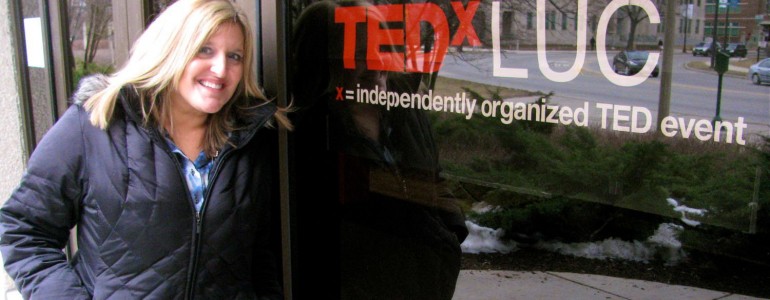As much as it annoyed my family and my then-estranged husband, I refused to find out my child’s sex before birth. I figured that the world could wait to press its confining gender roles upon my child. I wanted to be surprised by God.
I dreamt of a little girl learning to play catch and a boy learning to cook. I dreamt of children of both sexes learning, growing, and making spectacular messes.
I was determined to rejoice in whoever entered my life. What no one told me is just how much determination I would need, and how much I’d already taken for granted.
One day, after the hardest thirty-six hours of my life, a nurse handed me a miracle and told me that he was mine. I could have gazed at that perfect face for centuries and marveled over each tiny toe for a decade. I wanted to climb to the rooftop and sing hosannas about the wonder that had come to me. Praise be to Allah, Lord of All the Worlds! Glory unto Him who has given me a son, who is a joy to behold! Glory unto Him, for He has blessed me beyond what I deserve! My thoughts turned to what the years would bring: my son learning to walk, talk, to make friends and develop interests.
My son’s first few months were perfectly typical. He met milestones, gained weight, and nursed like a champ. I swelled with pride, joy, and gratitude. But as he grew from infant to toddler, he began to lag behind, missing more milestones as the months progressed. I fretted. I hauled him almost weekly to doctors who dismissed half of the concerns I expressed. I shared my worries with my ex-husband, who became increasingly remote in our post-divorce relationship. As much as I treasured my son, it became harder to connect with this new part of myself: the new mother who wanted to dance with joy. I felt something was wrong.
As we moved into the “terrible twos”, he became even more atypical. The limited vocabulary he’d amassed was disappearing. He had trouble sleeping, and he sometimes remained awake until the wee hours of the morning, by then giddy with exhaustion. But some unknown force would not let him stop shrieking and just fall asleep. I wanted to shriek myself.
I began looking for the cause of his symptoms along with a doctor who would believe me. I charted his diet, bowel movements, developmental milestones and symptoms while my own heart developed hairline fractures.
This was not the son I’d planned for, the one I wanted to sing about on a rooftop. The son I’d planned for would be learning to scribble and tell me which pajamas he wanted to wear to bed. The son I’d wanted to sing about didn’t scream and run around his bedroom until after midnight. I took my son to a doctor at a charity clinic, holding little hope but with several homemade charts in hand. I recited my son’s history in sparse, chronologically ordered detail. I was ready to hear yet again that he was fine, just “a little slow.” My surprise must have confused the doctor, as I wasn’t surprised at his tentative diagnosis of developmental delay. I was shocked that she believed me so readily.
It took a battery of tests and visits to specialists to confirm what I’d known for nearly a year: my son had autism, a developmental disorder with no known cause or cure. When the diagnosis came, I put on a brave face for my boy and congratulated him for making it through all those tests. But I knew that after my son had finally started to sleep thanks to his new supplements, I would need to grapple with my own feelings.
My son may never speak in full sentences or be able to manage the things many take for granted, such as making a purchase or introductions. Or, he might become a Rhodes scholar and a respected expert in the field of his choice. There are too many moving parts to tell at this point. But I celebrate every small sign of progress he makes, even tiny things such as using a gesture to indicate hunger is a hard-won victory.
Many parents of children with disabilities must learn to mourn the loss of the child they’d dreamed of having. Knowing that your child may never experience some of the milestones you remember fondly is a process much like losing a loved one. Many parents speak of learning to accept that their child’s life will be different, not inferior. The poem “Welcome to Holland” captures this sentiment succinctly. But I’m taking a slightly different path.
As there is no known cure, autism is considered permanent, even if some children learn to function well with therapy and time. My son’s autism is a part of him. My son is brave, determined, funny, and tolerant of a mother who gives him a paltry two cookies per week. He loves books and hugs, and has good musical taste. This isn’t the son I’d planned to have, but Allah is the best of planners, and everything He made is excellent. As odd as it might seem, I have come to rejoice in the son I have. So here I am again, longing to climb to the rooftop. Praise be to Allah, Lord of All the Worlds! Glory unto Him who has given me a son with autism, who is a joy to behold! Glory unto Him, for He has blessed me beyond what I could ever deserve!
Nakia Jackson has written for online publications since 2006, including columns for Sadie Magazine and Muslim Wake Up!. Her work is available on Livestrong, Ehow and The Bump.
She has written on topics as diverse as beauty, race, parenting and music. She is a contributor to the anthology Progressive Muslim Identities. Nakia is working on her first novel.
This post was originally published on LoveInshallah.com.




